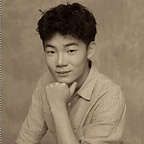The Piano the Buck and the Sea | beneath the candle-light
three portraits: studies of lighting, portraiture and transitions
Under the rays, the keys of a piano rolling. No face, but the shine of her eyes is enough. Hands, supple and light. Gracing the keys a little, empty tune. Notes building. Slow. Slow. Issuing from the great instrument like some gust of frantic wind. Circling around her, her hands, disturbing the hair. Somewhere outside there was a drone of something large, high above. She knew it was not thunder, she knew Andrew will not return. Strangely enough, the thought itself had not meaning left, it could not rouse any emotion. Her notes were tired off dancing now, the settle like timid little birds upon her shoulder. An Elegy for the Arctic — that was the piece. The piano must’ve been out of tune for a long time. She does not blame the old tuner. You do not blame the dead for their mistakes and wrongdoings in life. Indeed, everything we have is forcibly taken from our hands at that dreadful hour. The miser is given a new heart in death — he has nothing more to desire and to clasp. The infidel are cleansed, and the innocent are not rewarded. Her stomach groaned, she kept playing. She had no the heart to ask the baker, that kindly old gentlewoman and her little grandson living next door. He was given a cloth to stuff in his mouth during the night. Noise, the must keep silent. Woosh, the candle out in a single breath. Her hands stopped, she saw nothing. Her thoughts were too loud for this dead city. A hum, a shudder so loud. She was flung back, her birds fluttered away and off into some other place she could not describe. She tasted blood. She heard nothing for a brief moment, silence falling like the curtain falls upon an act. Someplace outside, the shrill cry of an infant was dulled by the ringing in her ears. Had they seen her candle from their dreaded planes far, far above? She stood, her frame shaking. She groped until her fingers met wax. The candle was still warm. She could not bear the suffocating dark, she was afraid but she knew. In a fury of disgust and anger and helpless rage the stick of wax flew through the shattered windows and into the street. In the distance, another strike hit the mark, lighting up the city in little candle-flames. One by one. It was a beautiful war.
By the light his wound looked worse than his anticipation. The ball of lead was lodged deep beneath, he should feel it but he couldn’t. The gamekeeper got him well, the gristly bastard. There was only a few more hills ahead, thinks he, o’er them mountains in the dark. He shined the stub of wax over his haul: a baldy, his antlers barely bumps protruding from the top of his dew-laden forehead. Young, stupid thing, the poacher muttered. Had to make such a ruckus when the pellet ripped through his foolish heart. Enough meat on the thing to feed the house for another week, though. And the rest to be made into sausages or hung up to smoke in strips. The frame he’ll sell to the slaughter man for some bread and tobacco. The notion of tobacco made him a bit woozy, he groped for his pockets to find none left. He spat into the bush. The night was still young, but he mustn’t remain here for long. Them keepers will still be out on his tail like a pack o bloodhounds. He coughed, winced as he felt the bullet move inside his left shoulder blade. Harriet will know a remedy for that, she always did. And little Daisy; yes, he must sell some of the sausages at the market for that plaid dress…
Her mother kept the lighthouse alight every night until her last breath, and her mother’s mother did the same. Carefully, the great lantern’s fire was ignited from a little candle clutched in her hand. This was the most treacherous part, she knew. It meant holding the flickering flame to the lamp unfaltering, in rain and gale and squall and hail. Her clothes were not enough for the cold North Wind sweeping forth from the Atlantic Ocean. They shredded through her well-worn linen, in through the holes near the elbows where patches of cloth were crudely hemmed and sewn together. The sailors called this a vargur; a wolf-wind, in her language. She tried to shuffle so as to shield her precious light from the storm. Her feet were rooted. It was as if the wolves frightened the firelight — it will not leap out. At times like these, she would close her eyes and try to picture herself elsewhere. The lighthouse-keeper thought of a faraway land called Europe — where ladies in puffy gowns danced under crystal tapers; where there was always a feast on the table, and gifts to give and tales to tell and parties to attend. Or so she read from the few books she had by her bedside. And then a bit farther out, where the rain never fell, and where the snow was golden instead of white. She knew not what was beyond hat strange land. A flush of warmth woke her from the cold’s enchantment. The lamp was lit! She coughed, saw something dark stain her sleeve. This was nothing new, her lungs were like the as long as she could remember. Doctors were scarce, and doctors were costly. So costly. She pulled down her sleeves so her hand will not cling to the wrought-iron railings. Her eyes turned away from the dark sea far, far below; and she stumbled below-deck. There she would lie in her rigid sheets and embrace herself, imagining the touch of another person, with a single tear rolling off her salt-stained cheek.
